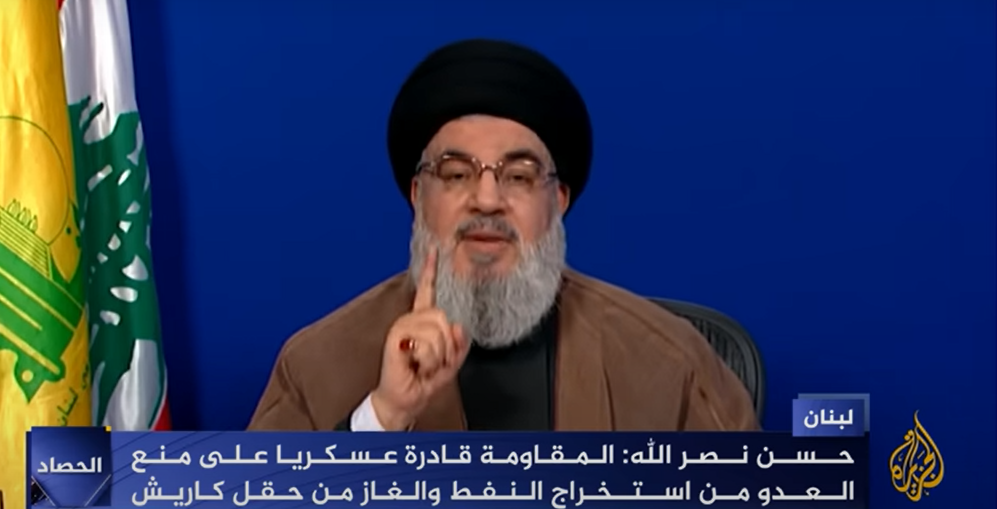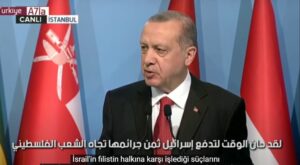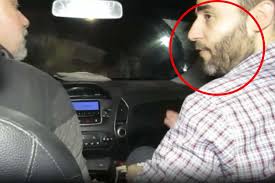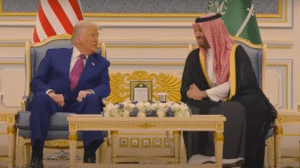Amos Hochstein, the American mediator between Israel and Lebanon will arrive in Beirut only at the end of the month to renew mediation efforts regarding the dispute over the maritime border between the two countries.
Lebanese sources say that there is still no written document on Israel's agreement to Lebanon's demands regarding the maritime border and the news about it are rumors. According to them, Lebanon is waiting for a written proposal based on which Hezbollah will also decide how to respond.
National security adviser Eyal Hulata will go to the US at the beginning of the week for talks with senior government officials on the issue of the nuclear Iranian threat, and he will also discuss with them negotiations with Lebanon on the dispute over the maritime border between it and Israel.
At the end of last week, Hezbollah leader Hassan Nasrallah launched another threat towards Israel.
In a speech he delivered He said:" If our demands on the maritime border are not met, we are going to escalate".
He added: "We need to keep an eye on the American mediator, he is wasting time, there is no connection between our issue and the possibility of a nuclear agreement being signed between Iran and the superpowers".
The Lebanese newspaper "Albnaa" reported last week that Hezbollah will soon send a military message to the Israeli enemy as a response to the policy of dragging feet and maneuvering on the issue.
In Lebanon it is estimated that Hezbollah will launch additional drones towards "Karish" gas rig even before the expected visit of the American mediator Amos Hochstein to Lebanon at the end of the month.
The tension between Lebanon and Israel is increasing because of Israel's intention to start extracting natural gas from the "Karish" gas field as early as next month and Hassan Nasrallah continues his threats.
Prime Minister Yair Lapid and Defense Minister Benny Gantz also sent warnings to Lebanon and Hezbollah but emphasized that they do not want an escalation. The latest IDF operation in the Gaza Strip was also a kind of message addressed to Hezbollah about the IDF's capabilities in the event of a military conflict.
The US is trying to mediate between Israel and Lebanon, but Hezbollah is trying to torpedo, apparently under the direction of Iran, any agreement reached on the maritime border.
Hezbollah claims that it is only trying to help the Lebanese government to maintain its rights, and in Lebanon Israel is being accused of "showing muscle" and verbally escalating ahead of the Knesset elections in November.
Israel And Hezbollah are not interested in a military conflict for internal reasons of each of the parties, in the end Israel can postpone the date of extracting natural gas from the sea in the "Karish" gas field by a few months until after the Knesset elections in order to avoid security tensions.
The US is also not interested in an escalation in the region..
According to European sources, the US wants Israel and Lebanon to reach an agreement after the presidential elections in Lebanon.
The situation in Lebanon is sensitive, it has a transitional government and the presidential elections are supposed to be held in October, Lebanon cannot withstand any military confrontation with Israel, it is still licking the wounds of the Second Lebanon War in 2006, it has no economic future and no opportunity to get out of its economic crisis without extracting the natural gas from the sea and Hezbollah knows that.
The IDF is preparing for a military confrontation in the north
Israel takes seriously the repeated threats of Hassan Nasrallah and the IDF in the north is ready to protect the "karish" gas rig by all means and is also prepared for the possibility of several days of battle if Hezbollah attacks Israel's gas rigs in the Mediterranean Sea.
The differences of opinion between Israel and Lebanon are not great and can be reconciled, so says a senior political official, but it seems that Hassan Nasrallah recognizes an opportunity to strengthen his position on the Lebanese street and at the end of the day to present himself as the one who protected Lebanon's rights and that thanks to him it reached better results in the negotiations.
Israel demands guarantees from the Lebanese government, through the American intermediary, that Hezbollah will stop his threats to attack all of its gas rigs in the Mediterranean Sea if an agreement is not reached before the middle of September.
Senior political officials make it clear that Israel will not give Hezbollah any image of victory.
Hezbollah is not prepared to give any guarantees to the Lebanese government before the government receives a clear draft of the proposed agreement that preserves its rights in extracting the natural gas from the Mediterranean Sea and a precise demarcation of the maritime border between it and Israel..
Yoni Ben Menachem
Senior Middle East Analyst




